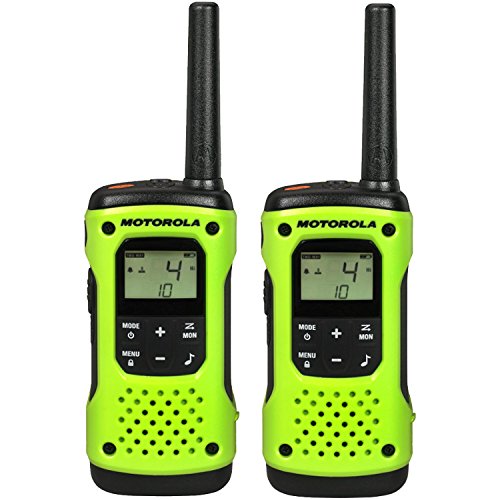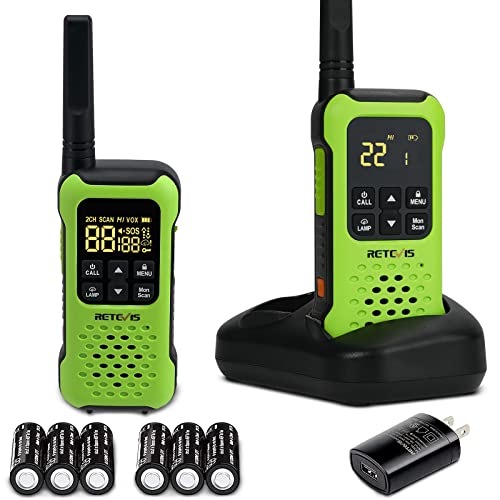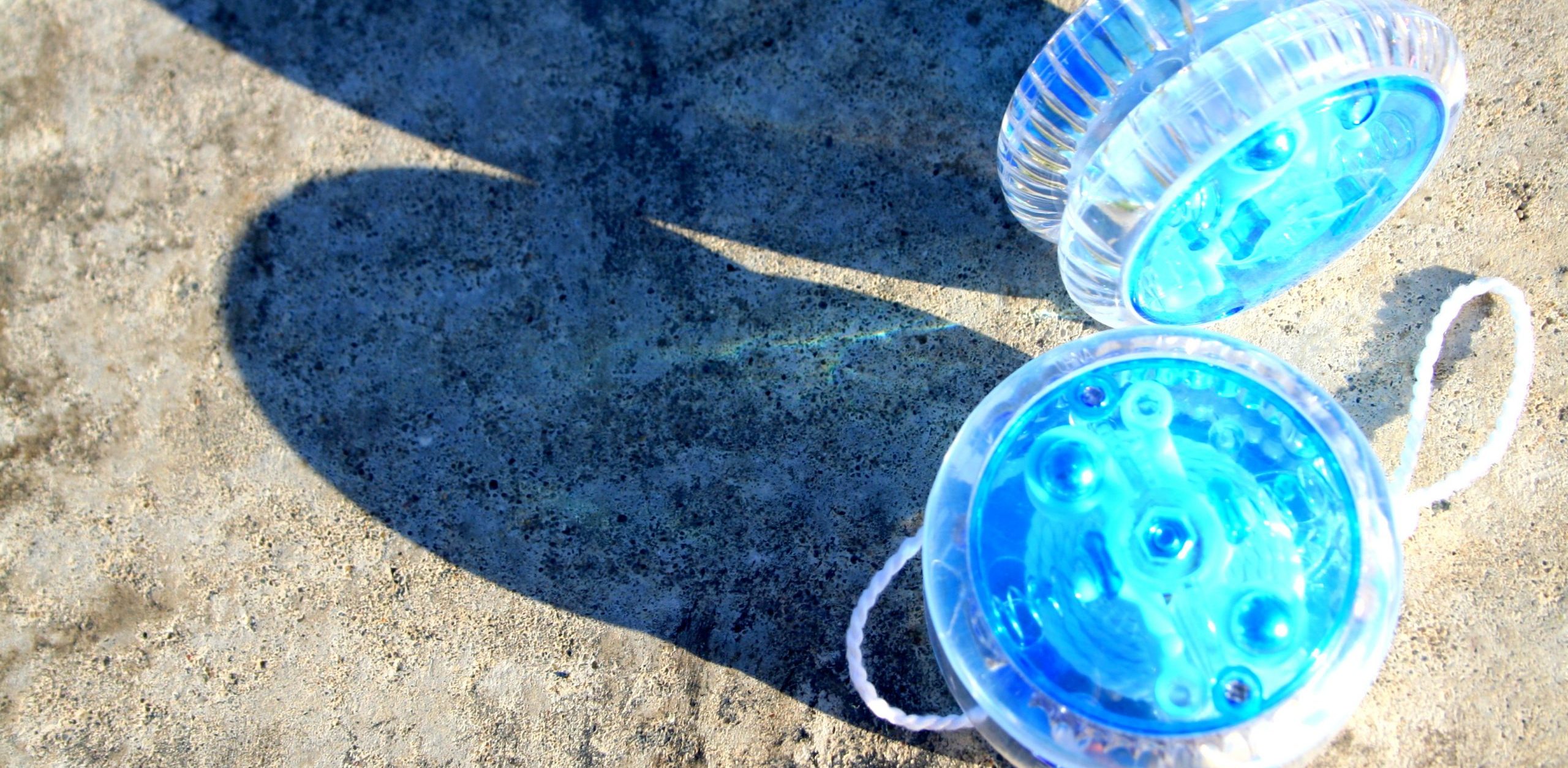Best Waterproof Walkie Talkies : Review And Buying Guide
Brandon Forder May 20, 2024 12:22 AM
Having fun in the great outdoors with your family or friends doesn't mean you have to be cut off from the rest of the world. In other words, are you just like me? I've got a solution for you in either case. To put it another way—walkie-talkies that are water-resistant.
You can use a waterproof walkie-talkie to get from one mountain range to the next, even if it's covered in snow. You can have fun, be safe, and stay in touch with those you love while on your trip.
What's more, who's to say that you need to leave the house to have fun? If this pandemic has taught us anything, it's that we can have some fun in the privacy of our own homes. Using your waterproof walkie-talkies, you can have some extra fun by going on a scavenger hunt or playing hide and seek.
Take my advice and I'll help you choose the best model for your needs.

Compare Products
Last update on 2024-05-20 / Affiliate links / Images, Product Titles, and Product Highlights from Amazon Product Advertising API
The need for waterproof walkie-talkies remains regardless of whether you're outside or inside. You never know what the weather is going to be like based on what you see on TV. Overpreparation is always a good idea, especially if you're doing something outdoors.
Finding the right model for you as a beginner can be a difficult task. And it's easy to get distracted from the essentials when everyone is claiming to be the best. But don't worry, I've got you covered with this handy checklist of what to keep an eye out for.
Intended use
When purchasing a walkie talkie, the first thing you should think about is what you intend to use it for. Given the wide variety of walkie talkies available, it's important to decide what kind of kayaking you'll be doing with your handheld radio before making a purchase.
It may not be necessary to have all the complex features included in models designed for more remote use if you're just looking for a walkie talkie to use with your friends while paddling on your local lake.
A marine VHF radio, on the other hand, is a distinct type of communication device with its own set of licensing requirements that will allow you to communicate with motorboats, port authorities, and other maritime traffic.
Your waterproof walkie talkie will work best if you know what you'll be doing with it before purchasing it. You'll be able to better understand the walkie-capabilities talkie's and limitations if you do this before going outside.
UHF And VHF
For the sake of clarity, I'll use the following abbreviations to spell out their main differences:
Ultra High Frequency (UHF) and Very High Frequency (VHF) are two different terms for the same thing.
So there you have it. A few hints.
UHF two-way radios (also known as walkie-talkies) transmit their signal from 300 MHz to 3 GHz. This implies that they are capable of transmitting through walls, buildings, and the like. So they're usually used indoors rather than out in the open air.
For outdoor use, the VHF radios are the best choice because they broadcast between 30 and 300 MHz. VHF walkie-talkie radios are fine if you and your paddling group won't encounter any man-made obstacles.
Is it better to use a UHF or VHF radio?
That's a tough one. As a means of providing a definitive answer, there is none. Sorry for the inconvenience, but there are simply too many variables to consider!
On a single channel, how many people should you have? How long are you going to be paddling? You'll need a certain amount of battery power.
The gist of what I'm trying to say is clear.
"No straight answer" is a bit of a bummer, I understand. In contrast, I'm here to show you the best way to go about finding the right equipment, not to tell you what to buy.
However, UHF walkie-talkies can be more expensive, so opt for VHF radios instead unless you absolutely require the ultra-high frequency.
Range
In most cases, walkie-talkies come with a pre-determined range. In most cases, however, you should be aware that these are not appropriate. With an 8-mile range, a walkie-talkie may only be able to travel 3 to 4 miles before losing signal. Be sure to select a larger selection based on your requirements.
Battery Life
The best walkie-talkies for short outdoor activities are those with built-in rechargeable batteries. After a certain period of time, the battery will need to be recharged, so make sure that your location has electrical outlets. Longer trips without access to electrical outlets are out of the question because of this. There are walkie-talkies that can be powered by alkaline batteries that will be right up your street. In preparation for your journey, you may want to stock up on extra batteries because they are easily replaceable.
Waterproof Level
The fact that you don't always go to places with large bodies of water may make it seem less important than it really is. However, this could prove to be your savior in the future. Before embarking on an outdoor adventure, I'm sure you've planned everything out, but the weather can always change. It can change from sunny to rainy in a matter of minutes, and you'll be sorry if you don't pay attention to this.
Channels & Privacy Codes
The walkie-talkie purchase comes with some challenges in setting up the entire group on the same radio channel. If you don't know what you're doing, the whole process of picking a privacy code for the channel can be frustrating.
But don't be alarmed; everything will be clear as day.
It works like this:
The Federal Communications Commission (FCC) has set a maximum number of channels that walkie-talkies can use. This means that you and your pals can easily communicate by tuning your radios to channel 2, for example.
The issue arises when you're on the same channel as another group.
Privacy codes are used for this purpose:
On channel 2, for instance, anyone who's tuned in to the same channel will be able to pick up a signal without a privacy code to go with it.
Instead of using channel 3 with a privacy code of 4, you can set your talkies to channel 3 with a privacy code of 4.
The privacy code is not the same as actual privacy. It was still possible for anyone to use their radios in any way they pleased. The transmission will be picked up by any walkie-talkie set on the same channel.
NOAA Weather Alerts
Talking about the random transmissions that your walkie-talkie can pick up in public, NOAA weather alerts are what you want to hear here.
With the help of NOAA and the FCC's Emergency Alert System, you have access to weather-related information that could potentially save your life at any time of the day or night.
In theory, smartphones can provide you with an accurate weather forecast, but what if you're in a remote location, like sea kayakers frequently are, and there is no cell reception? You've probably guessed where this is going.
Check to see if the walkie-talkies can access the various NOAA weather channels and include alerts, then proceed with caution..
Radio type & licensing requirements
Walking through the maze of license requirements for various types of radios isn't easy when you're in the walkie talkie and radio communications business, as everyone knows. The Federal Communications Commission (FCC) oversees radio licensing in the United States, but regulations in other countries may differ (FCC).
The FRS (Family Radio Service) and GMRS (General Mobile Radio Service) frequencies are commonly found in waterproof walkie talkies. However, the FRS and GMRS use different radio frequencies (462-467MHz) but serve different purposes and require different types of licenses to operate.
Friends and family can use FRS radio to communicate privately over short distances. GMRS radio, on the other hand, is crafted to be more powerful and operate over a slightly longer range while serving the same purpose.
Most radio users won't notice much of a difference between FRS and GMRS. However, an FCC license is required for anyone planning to use a GMRS-enabled device. For US citizens, the process of obtaining this license is straightforward, but there is an additional step. FRS radios, on the other hand, do not require a license.
Is the FRS/GMRS distinction important to you? It all depends on what you're looking for. The best option for a radio that can be used by all members of your family or friends is an FRS radio. However, if you plan to use the radio only for personal purposes, the additional power of GMRS radios may be worth the hassle of obtaining an FCC license.
Do I Need A License For A Walkie Talkie?
Most likely, you won't need a boater's license to purchase a simple walkie-talkie to communicate with your boating buddies. A licensed two-way radio, on the other hand, should not be overlooked.
A wide range of frequencies and channels are usually covered by these high-powered talkies, such as the GMRS waterproof radios, which use the General Mobile Radio Service, a licensed radio service that operates on frequencies between 462 to 467 MHz; these radios are water-resistant.
The limited number of channels available on license-free radios proved to be more than sufficient for most users. The Family Radio Service (FRS) and the Multi-Use Radio Service (MURS) are examples of these.
The license-free walkie-talkie is my recommendation as a result of this. Even so, if you want to take it a step further, most manufacturers will supply you with the information you need to obtain your radio license.
Why should I buy a waterproof Walkie-Talkie?
Think about getting a waterproof walkie-talkie before you decide that a mobile phone is sufficient for outdoor activities. Don't believe everything you've heard. What about a cellphone or internet connection while you're on the road? Can that phone withstand the moisture if it gets wet?
Even a small amount of water will not harm any walkie-talkie that is waterproof. Because of this, you won't have to worry about running out of things to say in bad weather. What more could you ask for, given that it's typically weather- and water-resistant?
In large groups, we are more secure. Regardless of the weather conditions, you and your companions will be able to hear each other clearly thanks to this device.
You can never be too safe when you're out in nature. Precaution is always a good idea when it comes to accidents.
These waterproof walkie-talkies will keep you and your loved ones safe and secure. If you want to have a good time, don't worry about anything else.
It's been so long since walkie-talkies were invented that some people think they're pointless. As a means of communication, mobile phones have taken the lead. However, there's a good reason why so many people are still using it today.
It won't deteriorate in storage for a long time. It will float even if you throw it in the water. Your phone will always be the most reliable means of communication you have.
Go out and have some fun, but don't forget to bring this with you just in case.


























